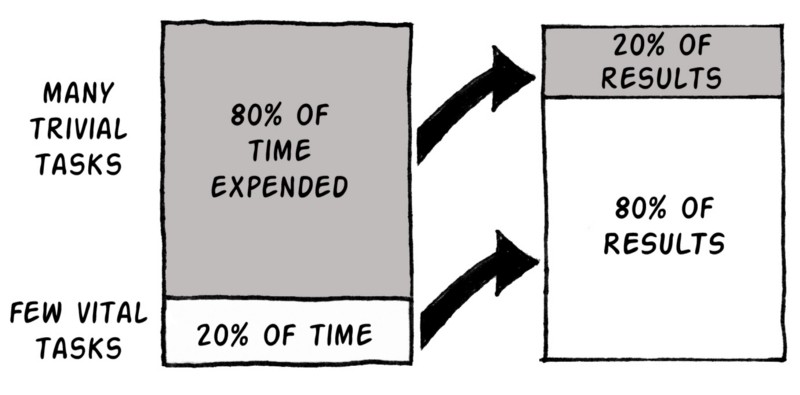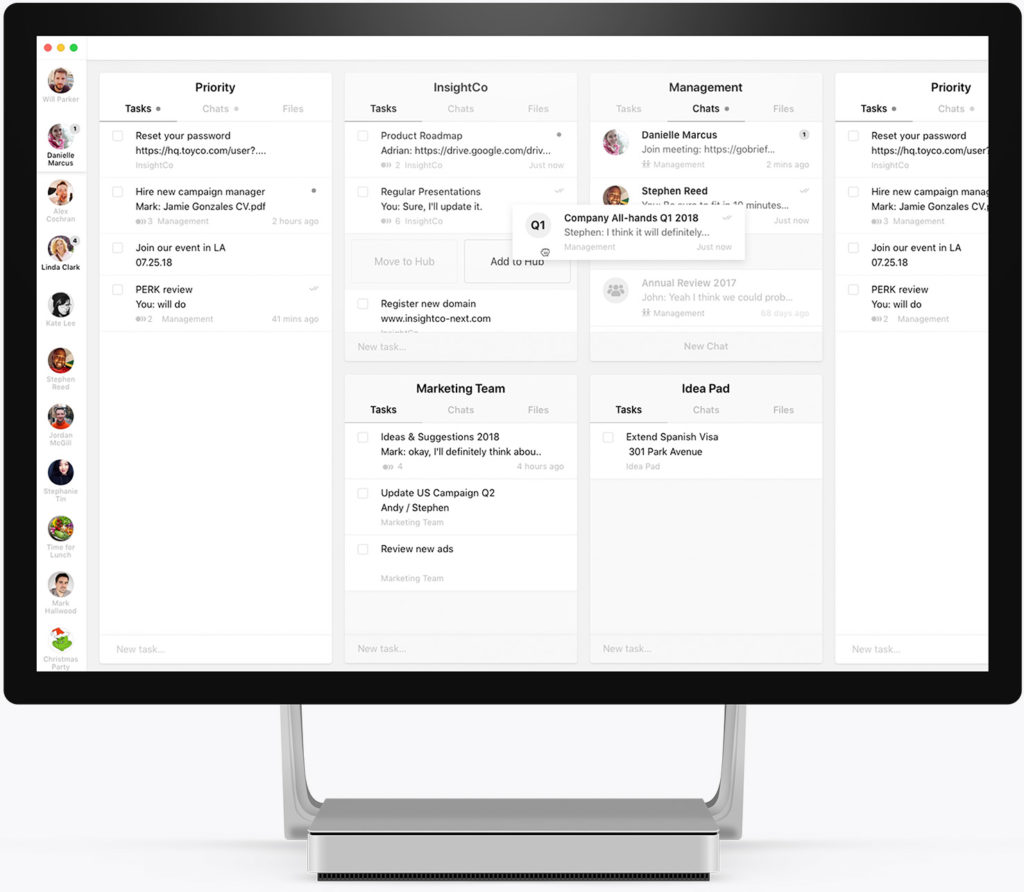Burnout can leave you feeling exhausted and overwhelmed. But by recognizing the early warning signs of burnout, you can take the necessary steps to prevent it. If you feel you’ve already hit that threshold, never fear. There are a wealth of ways you can regain your focus, sense of balance and feel positive once again.
What Are Burnout Symptoms?
Burnout is a feeling of intense physical and emotional exhaustion. If it’s left untreated, it can morph into chronic fatigue, reduced focus and performance, a weakened immune system and can leave us feeling detached from our world.
Now before we let burnout spiral out of hand and hinder all your hard work, let’s identify the key triggers. Spend some time finding out exactly what is causing you to feel stress. Burnout can be an overwhelming feeling. It may seem that everything and anything is triggering it, but step back and spot the principal causes.
Firstly, pay attention to your body. What is happening around you when you notice your heart beating rapidly, your breathing gets faster or when you start to sweat? Is it a stressful project you’re working on? Is it a looming deadline? What is causing this?
Now that you’ve identified the causes, here comes the fun part –let’s get to work. It might not feel like it when you’re in the thick of it, but there’s always light at the end of the tunnel. Here are several tips on how to spot and avoid burnout. Your choices will depend on your personality and circumstances, as well as the type of stressors you experience. You could adopt one coping strategy today and another one tomorrow. Noticing that it is happening and just Just trying something new is often the best starting point for getting it under control.
How to Avoid Burnout
1. Adjust your mindset
A common burnout symptom is to feel cynical and frustrated. There is an overall lack of passion and motivation for things that used to excite you. You may feel that the work you’re doing is irrelevant and meaningless. You might even have a difficult colleague to work with on a regular basis. Regardless of where the sources lie, you hold the most powerful antidote.
Adjust your attitude. Most stress comes from within yourself. Yes, there may be external factors that elicit this feeling. But you are in control of your mind and how you perceive the situation.
“The emotional patterns that underlie stress can be repatterned by focusing on positive emotions,” wrote Aimee Bernstein in Stress Less, Achieve More.
“If you lose your cool, your smile and your happy day, you’ve given your energy and power away.”
While everyone experiences some negative emotions from time to time, it’s important to recognize when it’s become your default state of being. Consider ways to improve your outlook. Rediscover gratifying aspects of your work. Take regular short breaks throughout the day. Actively spend time away from work doing things you relish.
2. There is power in numbers
Humans are social creatures. This could not be truer than what it comes to times of trial. Reach out to your team and have a brainstorming session with the team about your main roadblock. Asking for help does not make you appear weak. It displays courage and honesty – all admirable leadership traits. If you don’t have an immediate team, consider outsourcing a project or assigning it to a freelancer.
If it’s available to you, discuss your specific thoughts and concerns with your manager. A good idea is to come to your manager with the challenge you are facing and outline some suggestions on how you feel these challenges can be overcome. Proactively outline a few steps that you feel you need to implement change and ask for their feedback and time to discuss the options in front of you.
Possible routes might be to have a weekly meeting to set priorities with your manager, change some work expectations, timelines or even find out if job reassignment or /adjustment is an option? What about telecommuting? Are there options for continuing education or professional development that might help you do your job even better than you are doing it today?
Mental health and employee well-being are increasingly becoming a primary focus for companies. Roughly one-fourth of all major U.S. employers offer some version of stress reduction, David Gelles wrote in his book, Mindful Work. There is less of a stigma around it. In fact, managers and CEO’s welcome honesty from their employees. It not only helps the teams morale but also maintains a healthy bottom line.
3. Get out and socialize
Avoid being alone. Studies found that people who socialize often are less stressed than loners. But choose your pals wisely. Even a little time with the wrong crowd can do more stress than good.
In a report published by Oxford Academic, there is a difference between objective and subjective loneliness. The former is a physical state of being alone or socially secluded. The latter refers to the feeling of loneliness – even if you are surrounded by people. It’s an emotional rather than physical state.
Actively seek out fun social things to do at or around work – if there is a yoga club, sign up or attend the offices weekly happy hour. Speaking to your colleagues in a social setting can help cement a connection that will be helpful during regular work hours.
4. Get more sleep!

This may be the most helpful tip of all. Aim to get anywhere between seven to eight hours of sleep a night. If you continuously get less than six hours a night, you are doing your body and cognitive functions a disservice. Lack of sleep can lead to lower motivation, greater fatigue and leaves you prone to making mistakes.
Studies have shown that most Americans would be happier, healthier and less stressed out if they were to sleep an extra 60 to 90 minutes per night.
5. Take deep breaths
Breathing deeply is the basis for many exercises and activities; yoga, meditation, and childbirth. The secret is not just to perform any type of breathing but to take deep breaths. Place your hand just below your breastplate but above your stomach. With your hand in place, breathe as you normally would. Does your hand move up and down? If not, you are breathing too shallowly. Deep breathing requires you to use your diaphragm to get air to the bottom of your lungs. Breathe deeply and slowly with your hand in place and notice how much it moves. This is the kind of breathing you need to do to relax.
Count to eight while breathing in slowly through your nose, then hold your breath for four, and then expel the air slowly while counting to eight. Do this exercise 20 times a day, and you will notice an increased sense of relaxation. While you are doing it, visualize that whatever is causing you stress, is disappearing right before your eyes.
“Habits and fears can be changed or reversed if you visualize the desired behavior,” L. John Mason wrote in the Guide to Stress Reduction.
6. Get moving

Exercise regularly without pushing yourself to exhaustion. Keep yourself properly hydrated and pay attention to your breathing. Find an outlet for your stress – whether it’s swimming or jogging – and get your body moving.
Physical activity creates endorphins — chemicals in the brain that function as natural painkillers — and also improve the ability to sleep, therefore lowering stress levels. Even 20 regular exercise minutes a day can make the world of difference to your mental state of mind.
7. Practice the 80/20 Rule

The 80/20 Rule or Pareto Principle says that 80 percent of results come from 20 percent of causes. In other words, few things we do each day on a regular basis, give us the most significant results. When it comes to minimizing stress, focus on 20 percent of the stress causes to improve 80 percent of the results.
After identifying your key stress triggers in step one, now look at what is the biggest trigger and look at ways to reduce them. Instituting an immediate change is the best way to relieve stress quickly. Whether it’s to set up an appointment with a therapist, that may be the hardest part. But once you’re in a good routine, you won’t even remember the initial effort it took. Do something to change your life. Take action now.
8. Improve your communications
A major source of stress at work is the plethora of ‘noise’ around us all the time, as well as, the constant communication and chatter we engage in. While we will never that help us focus our communications in such a way that it is productive and output based
Try using a tool like Brief. It’s a productivity app that is purposely stripped back in terms of interface design to bring users a clutter-free productivity tool. It combines all the essentials for getting work done, focusing on mission-critical tasks that drive the human mind to get into a focused state.
After looking at significant stress causes in the workplace, Brief created an alternative solution that is intended to keep you focused and productive. No red alarms, no bombardment of colors causing stress and anxiety, no chaotic conversation notifications that go around in circles. When your priorities are all laid out on a single dashboard, everything becomes manageable, clear and actionable.
Your time is precious, especially during stressful times Use a tool that helps you focus on the critical tasks at hand. Don’t get overwhelmed with everything going on around you. Just focus on the essentials.
Conclusion
Burnout is not a permanent state, remember that it’s a sign to change. Knowledge is power. By being equipped with the causes and coping mechanisms for burnout, you can pick and tweak what will work for you. Take some deep breaths, get out and socialize, nourish your creative side and set time aside for relaxation.
Despite how challenging it may feel in the moment, remember that nothing lasts forever. This experience can serve as a turning point that launches you into a more sustainable career and a happier, healthier life. It’ll make you wiser and able to help others when they’re in a similar situation.
Ready to try Brief? Sign up for free today!






2 thoughts on “On the Brink of Burnout? 8 Simple Tips to Overcoming It”
Great blog! As a public school teacher, it’s easy to be worn down and not take care of myself. Thanks!
If in the future you might dedicate something to people in my (or similar fields), that would be awesome.
Great article–if the glass is half full, and you still see signs which give you hope. For those on the lowest rung of the totem pole, consistently being subjected to exponential stress, it may be best to leave the stressors behind.